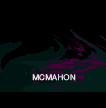

Fact or Fiction? excerpt: England's Dreaming, Jon Savage 1992 St. Martin's Press
You know what I think?
I think the whole world stinks
& I don't need no shrink
I just hate it
The Electric Eels 1975
" ...'Cleveland is a working-class town with very unsophisticated tastes,' says historian Mike Weldon, 'but for some reason it's a major music media city. Records break there, maybe it's a way into the Midwest. In the early seventies, Cleveland was a major market for Bruce Springsteen, David Bowie. The New York Dolls, Television played there beforethey had a record out, and at the same time, because of the strength of the local radio stations, we got the best British bands of the time: T. Rex, Dr Feelgood, Roxy Music.
'You always had a small group of people who loved that kind of music: The local media didn't write about them, there was no label interest at all, until 1778. In 1973 to 74, there was a small underground scene that included Rockets From the Tombs, who later became Pere Ubu, and who had members in the Dead Boys. There were the Electric Eels and the Mirrors. From Akron, there were the bizarros, Devo. Most of them had fallen apart by 1977.'
'Most of these people were from middle or upper-middle class backgrounds,' writes Pressler. 'Most were very intelligent. There was no reason why they should not have effected an entry into the world of their parents. Yet all of them turned their backs on the world, and that meant a number of very painful choices. Yet they were not drop-outs in the sixties sense: they felt, if anything, a certain affection for consumerist society and total contempt for the so-called counterculture. the sixties drop-outs dropped in to a whole world of people like themselves; these people were on their own.'
The Cleveland groups used the same building blocks as New York or London, but their development in isolation resulted in a Bohemianism that was proud to fail. 'The most nihilistic were the Electric Eels,' says Weldon. 'John Morton was the leader: he and dave E., the singer, wrote the songs which had funny clever lyrics. There was a lot of violence attached to that group. John liked to call it Art Terrorism. Brian mcmahon, the guitarist, and John would go out to working-class bars where people worked in steel mills, and dance with each other. That caused serious fights.
'In 1974, they were wearing safety pins and ripped-up shirts, T-shirts with insulting things on them, white Power logos and swastikas: it was offensive and they meant to be offensive. they meant to distract people, but I don't think they were exceptionally racist: they were being obnoxious and outrageous Live they were often too out of control. I don't think they seriously thought anything was going to happen except they wre going to go out there and get arrested.'
It was the problem that would be endlessly repeated during the next few years: in trying to blast through the cultures complacency, the Electric eels succumbed to the very nihilsm that was their tool. Their first forty-five, recorded just before they broke up in mid-1975, mixed impossibly distorted production with words that seem to crawl up the wall. 'Cyclotron' spins flashing, surreal images taken from a vast wasteland of pop culture and suburban plenty, while 'Agitated' goes into the eye of the storm, a closed cycle of frustration and rejection: 'I'm so agitated/ So agitated/ So agitated/ That I'm so agitated/ I'm so agitated...'
'I would like to know the source of the deep rage that runs through this story like a razor-edged wire,' writes Charlotte Pressler. 'It wasn't precisely class hatred, it certainly wasn't political; it went too deep to be accepting of the possibility of change. The Eels perhaps came closest to embodying it fully; but it was there in everyone else. It was a desperate stubborn refusal of the world, a total rejection: the kind of thing that once drove men into the desert, but our desert was the Flats. It should be remembered that we had all grown up with Civil Defense drills and dreams of the bomb at night; we had been promised the end of the world as children, and we weren't getting it.'..."
 |
 |
 |
 |
 |
 |
 |
 |
|